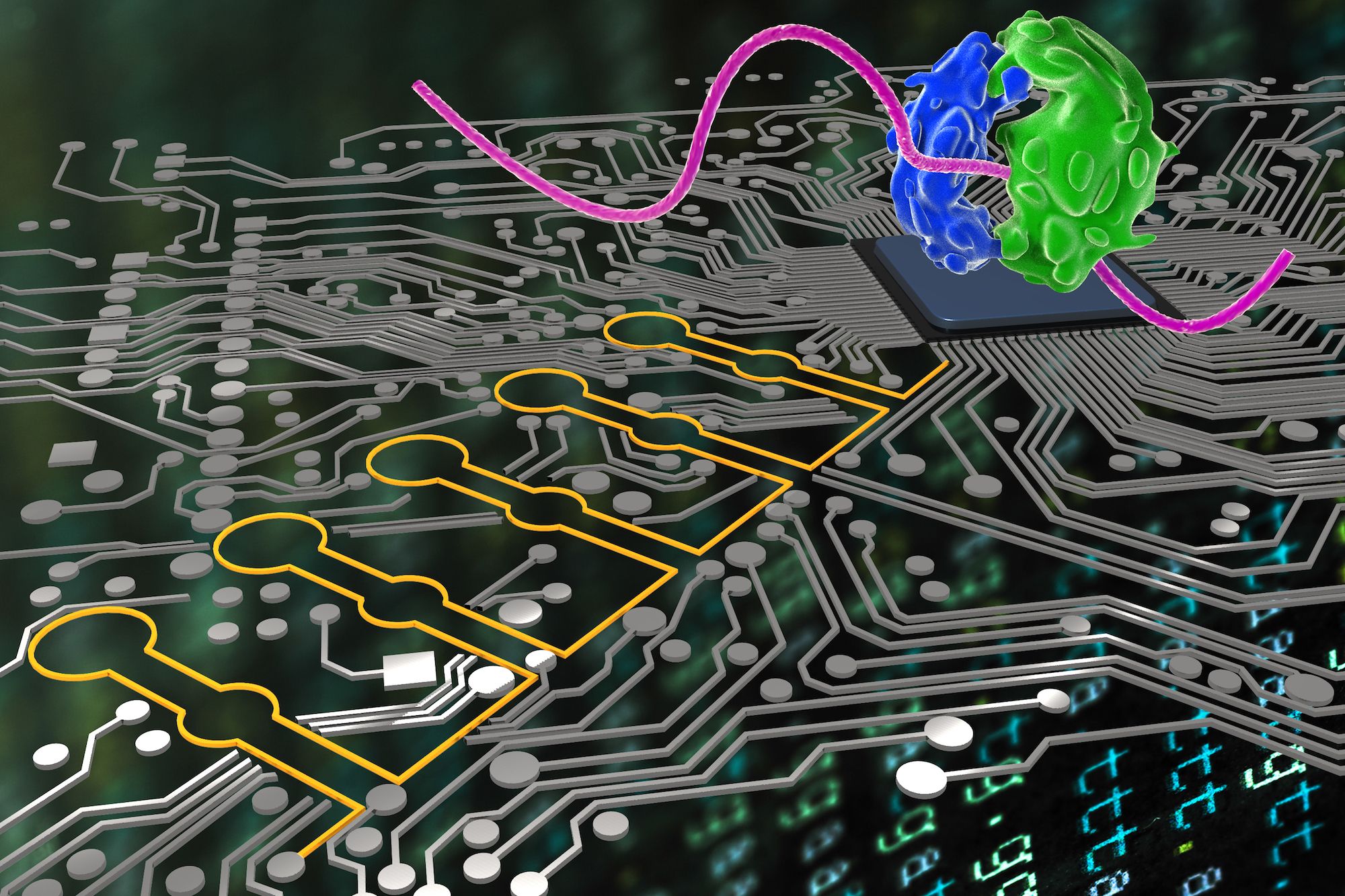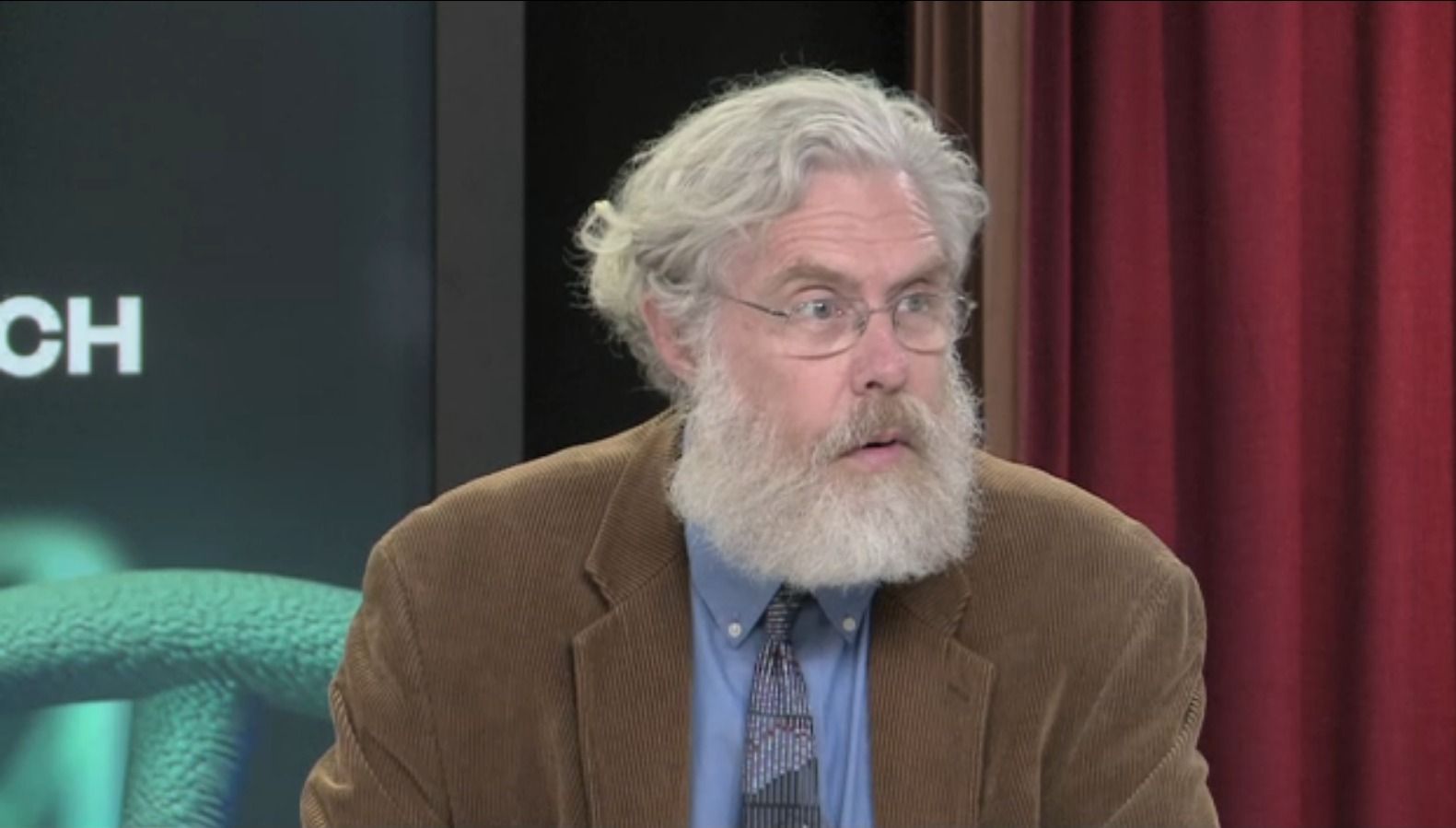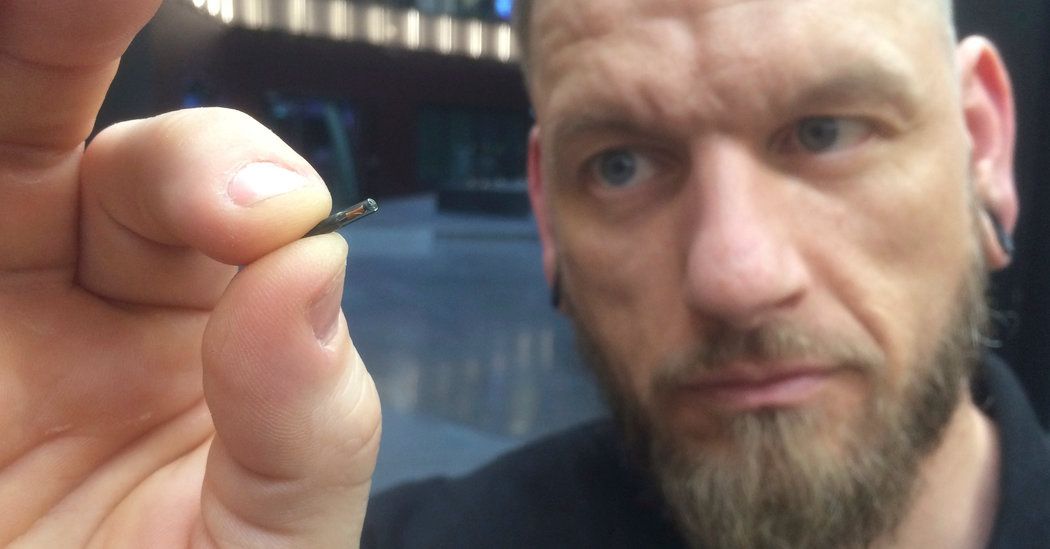Archive for the ‘computing’ category: Page 692
Aug 1, 2017
Professor George Church – Turning Back Time to End Age-related Diseases
Posted by Steve Hill in categories: bioengineering, biotech/medical, computing, genetics, life extension, neuroscience
Many of you will likely already know who Professor George Church is and that he is an important and senior member of the research community engaged in treating the aging processes to prevent or reverse age-related diseases, not to mention all kinds of other applications for genetic engineering. For those who are not familiar with him a short bio follows.
George Church is a professor at Harvard & MIT, the co-author of over 425 papers, 95 patent publications and the book Regenesis. He developed the methods used for the first genome sequence back in 1994 and he was instrumental in reducing the costs since then using next generation sequencing and nanopores plus barcoding, DNA assembly from chips, genome editing, writing and re-coding.
He co-initiated the Genome projects in 1984 and 2005 to create and interpret the world’s only open-access personal precision medicine datasets. He was also involved in launching the BRAIN Initiative in 2011.
Jul 31, 2017
Scientists Have an Experiment to See If the Human Mind Is Bound to the Physical World
Posted by Shailesh Prasad in categories: computing, neuroscience, quantum physics

Theoretical physicist Lucien Hardy is pushing wants to push the boundaries of quantum physics by performing a Bell test using humans as links. This could potentially shed light on the existence of human consciousness and just what it is made of.
Perhaps one of the most intriguing and interesting phenomena in quantum physics is what Einstein referred to as a “spooky action at a distance” — also known as quantum entanglement. This quantum effect is behind what makes quantum computers work, as quantum bits (qubits) generally rely on entanglement to process data and information. It’s also the working theory behind the possibility of quantum teleportation.
Jul 30, 2017
Western Digital announces high-capacity 12TB, 14TB helium-filled hard drives
Posted by Shailesh Prasad in categories: computing, futurism
Western Digital has announced new 12TB, helium-filled hard drives, with a 14TB drive coming in the near future. The company has squeezed an eighth platter into a conventional 3.5-inch form factor, where other conventional drives top out at six.
Jul 30, 2017
Hacked E. Coli Shows the Promise of Programmable Biology
Posted by Klaus Baldauf in categories: bioengineering, biotech/medical, computing
 Researchers turn living cells into biological sensing and computing platforms.
Researchers turn living cells into biological sensing and computing platforms.
The preferred term is “ribocomputing.” Take a molecule of RNA, the “messenger” chemical that carries instructions from a cell’s DNA to the rest of the cell, and basically rewire it. By hacking the RNA, it’s thus possible to take command of the processes of the cell, particularly that of protein synthesis. It’s also possible to rewire the RNA to respond to specific stimuli, offering an engineered microbiological system that reacts to inputs in the same way that an embedded computer might respond to a temperature sensor of accelerometer.
Synthetic biology or “hacked” biology is a quickly growing field, but the term ribocomputing is scarce, mostly limited to a single 2016 study. That was the case at least until this week and the publication of a paper in Nature describing RNA-based synthetic biological circuits that are capable of implementing just what I described above: sensing external signals and directing cellular machinery to respond to those signals in programmed ways. It’s fascinating but also a bit spooky.
Continue reading “Hacked E. Coli Shows the Promise of Programmable Biology” »
Jul 28, 2017
A New Breakthrough in Quantum Computing is Set to Transform Our World
Posted by Shailesh Prasad in categories: computing, quantum physics

The current leader in quantum computing just announced the successful creation of a 51-qubit quantum computer at a recent conference in Moscow.
Jul 28, 2017
Why the super-rich are ploughing billions into the booming ‘immortality industry’
Posted by Derick Lee in categories: bioengineering, biotech/medical, computing, life extension, mapping, neuroscience
Imagine a world in which you’re 90 years old and nowhere near middle-aged. An app on your phone has hacked your DNA code, so you know exactly when to go to the doctor to receive gene therapy to prevent all the diseases you don’t yet have. A microchip in your skin sends out a signal if you’re at risk of developing a wrinkle — so you step out of the sun and hotfoot it to your dermatologist. Every evening you sync your brain-mapping device with The Cloud, so even if you were caught up in a fatal accident you’d still be able to cheat death — every detail of your life would simply be downloaded to one of the perfect silicon versions you’d had made of yourself, ensuring you last until at least your 1,000th birthday.
This may sound like science fiction but it could be your fate — provided you can afford it. If current research develops into medicine, in the London of the future the super-rich won’t simply be able to buy the best things in life, they’ll be able to buy life itself by transforming themselves into a bio-engineered super-race, capable of living, if not forever, then for vastly longer than the current UK life expectancy of 81 years.
The science of turning back the clock has never been more advanced. In Boston, a drug capable of reversing half a lifetime of ageing in mice is about to be tested on humans in a medical trial monitored by NASA. NMN is a compound found naturally in broccoli which boosts levels of NAD, a protein involved in energy production that depletes as we get older. Professor David Sinclair, who headed up the initial research at Australia’s University of New South Wales, doses himself with 500mg daily, and claims that he has already become more youthful. According to blood tests analysing the state of the 48-year-old’s cells, prior to taking the pills Sinclair was in the same physical shape as a 57-year-old, but now he’s ‘31.4’.
Jul 26, 2017
Neuroreality: The New Reality is Coming. And It’s a Brain Computer Interface
Posted by Klaus Baldauf in categories: computing, neuroscience

We will need to tap into our brains and enter the era of neuroreality if we want to reach the next level of truly immersive worlds.
Jul 26, 2017
Microchip Implants for Employees? One Company Says Yes
Posted by Aleksandar Vukovic in categories: computing, food
Employees at a Wisconsin technology company are volunteering to have microchips implanted in their hands to make unlocking doors and paying for food easier.
Jul 26, 2017
Living computers: RNA circuits transform cells into nanodevices
Posted by Klaus Baldauf in categories: bioengineering, biological, computing
The interdisciplinary nexus of biology and engineering, known as synthetic biology, is growing at a rapid pace, opening new vistas that could scarcely be imagined a short time ago.













